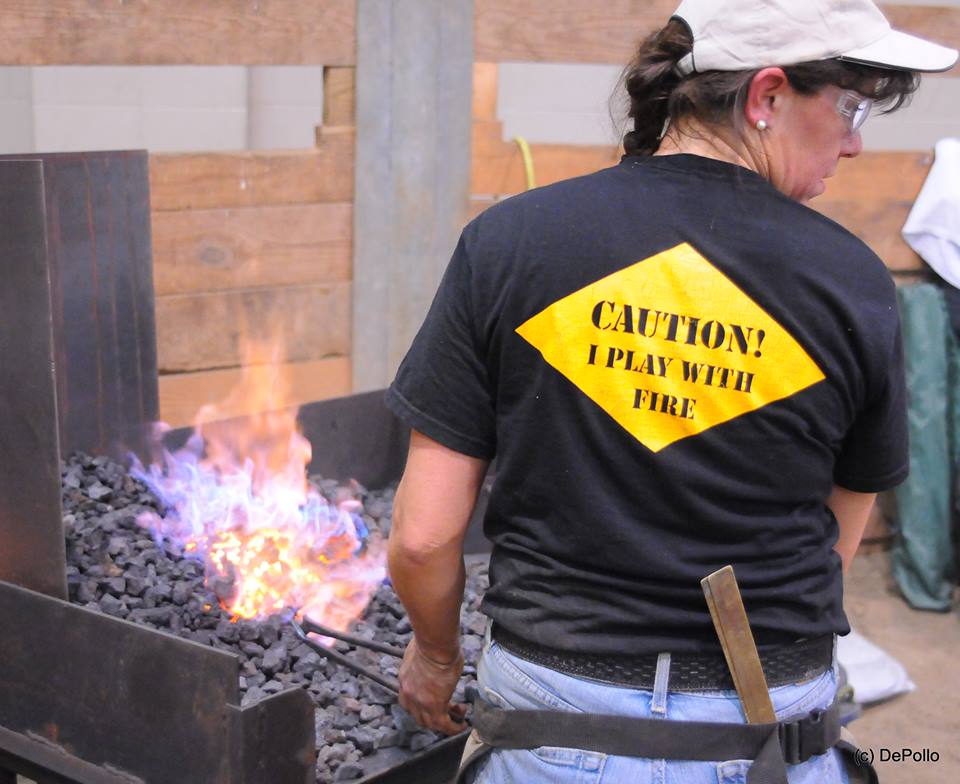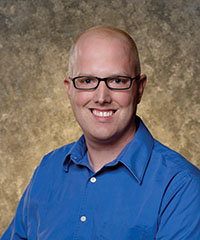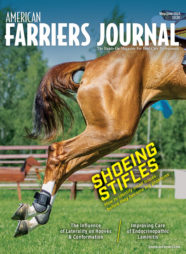I attended this past weekend’s Hoofcare Essentials Clinic, presented by the American Association of Professional Farriers/Canadian Association of Professional Farriers. Hosted by Marechalerie Bromont, this 1-day event delivered insightful and practical footcare information for attendees — both English- and French-speaking.
Among the presentations, Michigan farrier Jennifer Horn delivered a talk on how forging competitions have helped her continue her education and what judges look for from contestants’ work.

Jennifer Horn plays with fire, and she's said it has made he a much better farrier.
Image courtesy of Mark DePollo
We’ll cover those specific things judges look for in an upcoming article for the AFJ website. As a quick preview of that, I found Horn’s advice on observation particularly keen. Obviously the practicing and work during the contest are learning experiences. But by looking around at competitions, you can learn a great deal. How do contestants build their station? What are the sequences in which they build shoes? Get out of your own world — using your sense of sight will help you employ new ideas to improve your skills and efficiency.
But back to judges. Farriers face many other judges outside of competition. Horn reminds that your everyday farrier work involved judges. The horse, the owner/rider, trainer, veterinarian and other horseshoers evaluate a farrier’s work.
Which one is most important? For me, that was answered by one of the lecture’s take-home messages. In relation to evaluating her work in competition, Horn was told by Colorado farrier Jim Quick, “Pretend you are the judge, Jennifer.”
That is essential advice because it carries beyond forging competitions. In the most extreme cases of poor work, an untrained eye can recognize a deficiency in work, especially if it is delivered through a lame horse. But can the untrained eye recognize a poor trim or shoeing job that the resilient horse can mask? What about extra effort or cut corners? Maybe, maybe not. But the farrier who performed the work knows.
Establish your personal criteria and then match yourself to that with work performed on each individual horse based on its individual needs. Did you do the best work possible for that horse in that instance? The judge will tell you.








Post a comment
Report Abusive Comment